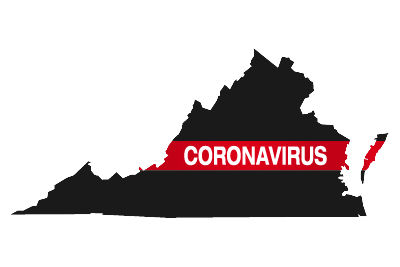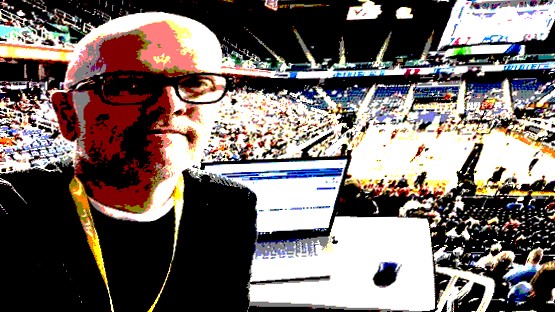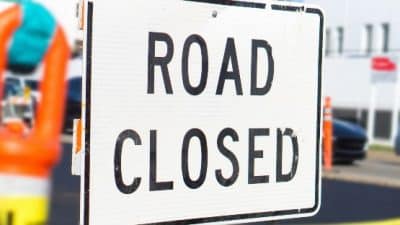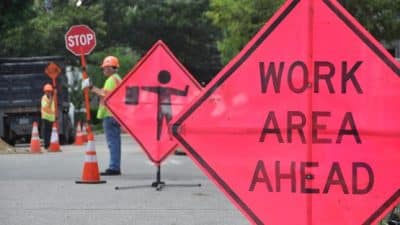
The Blue Ridge Area Food Bank and three Valley healthcare groups are teaming up to keep COVID-19 patients nourished while in quarantine.
When they are discharged from care or while they await test results, financially vulnerable COVID-19 patients at Augusta Health’s hospital emergency room and Waynesboro Assessment Center and Sentara RMH Medical Center receive shelf-stable food supplies packed in boxes by Food Bank volunteers.
The food is provided free of charge so that patients and their household members self-isolating due to COVID-19 have the meals they need.
“Partnering with local healthcare organizations provides a perfect opportunity to meet the nutritional needs of COVID-affected patients before they go home to self-isolate,” says Maria Bowman, programs manager at the Food Bank. “We hope this food makes their isolation and recovery feel a bit less daunting.”
Augusta Health began distributing food boxes to their COVID-19 positive or suspected case patients in April, based on a screening that determines whether an individual needs food.
Called Mask and a Meal, Augusta Health’s distribution program provides an array of helpful resources to patients in addition to food. Augusta Health’s hospital emergency room, and Waynesboro Assessment Center provide food boxes to any patient who has been tested for COVID-19 and needs food while they await their results at home.
“Our food distribution partnership is important on many levels,” says Mary Arrowood, director of operations for Augusta Care Partners. “Our new COVID Care Management Team connects with every patient who is tested for COVID at an Augusta Health facility to provide support, education, and information.
“This connection begins right after testing, while results are pending, and continues for those patients who are COVID positive. When assessing the patient’s needs, one of the questions we ask is about their access to food,” Arrowood adds. “We noticed an emerging trend of food insecurity due to isolation during these calls, and we are excited to be able to meet those needs in partnership with the Blue Ridge Area Food Bank.”
Due north off the 1-81 corridor, Sentara RMH also distributes food boxes of shelf-stable items to patients in need and impacted by COVID-19.
Their distribution process includes:
- Providing food supplies to confirmed COVID-19 patients leaving the hospital to self-quarantine.
- Providing food supplies to newly tested patients leaving the emergency room to await results.
- Following up through phone calls to patients at home under self-quarantine in need of additional food.
“With more than 50 spoken languages in our service area, Sentara RMH is working to meet the needs of our culturally diverse population,” says Patra Reed, regional director at Sentara RMH. “The Food Bank was able to provide printed instructions in the most common second language—Spanish—to help patients who need additional food from local pantries. Our interpreters are also assisting in determining need.
“This initial box of food provides staple food items along with educational information on self-quarantine and isolation. Many in our community already have feelings of isolation, are without employment at this time, and may feel anxious about using more formal types of aid. This program is a great support to many facing food insecurity in our community,” Reed adds.
Another option for patients seeking food—including fresh produce and protein—is to utilize their nearest Food Bank partner food pantry.
Patients are encouraged to designate a healthy person to pick up food supplies on their behalf.
A quick search of the Food Bank’s pantry locator tool (www.brafb.org/find-help) reveals the location and phone number for nearby pantries. Patients or their designees should call ahead before visiting to confirm distribution hours.
Upon arrival at a pantry, food pick-up designees must provide the recipient’s name, address, phone number, and the number of adults and children in the recipient’s household.
Designees must be able to deliver the food supplies without direct contact with the patient or anyone in the patient’s household.
“We want to ensure these individuals can focus on getting better instead of where their next meal will come from,” Bowman adds.
Funds from a grant awarded by Sentara Healthcare and Optima Health to the Federation of Virginia Food Banks helped make this initiative possible.
The goal of the grant is to support needs stemming from Medicaid expansion, and address social determinants affecting the health and well-being of low-income Virginians.










